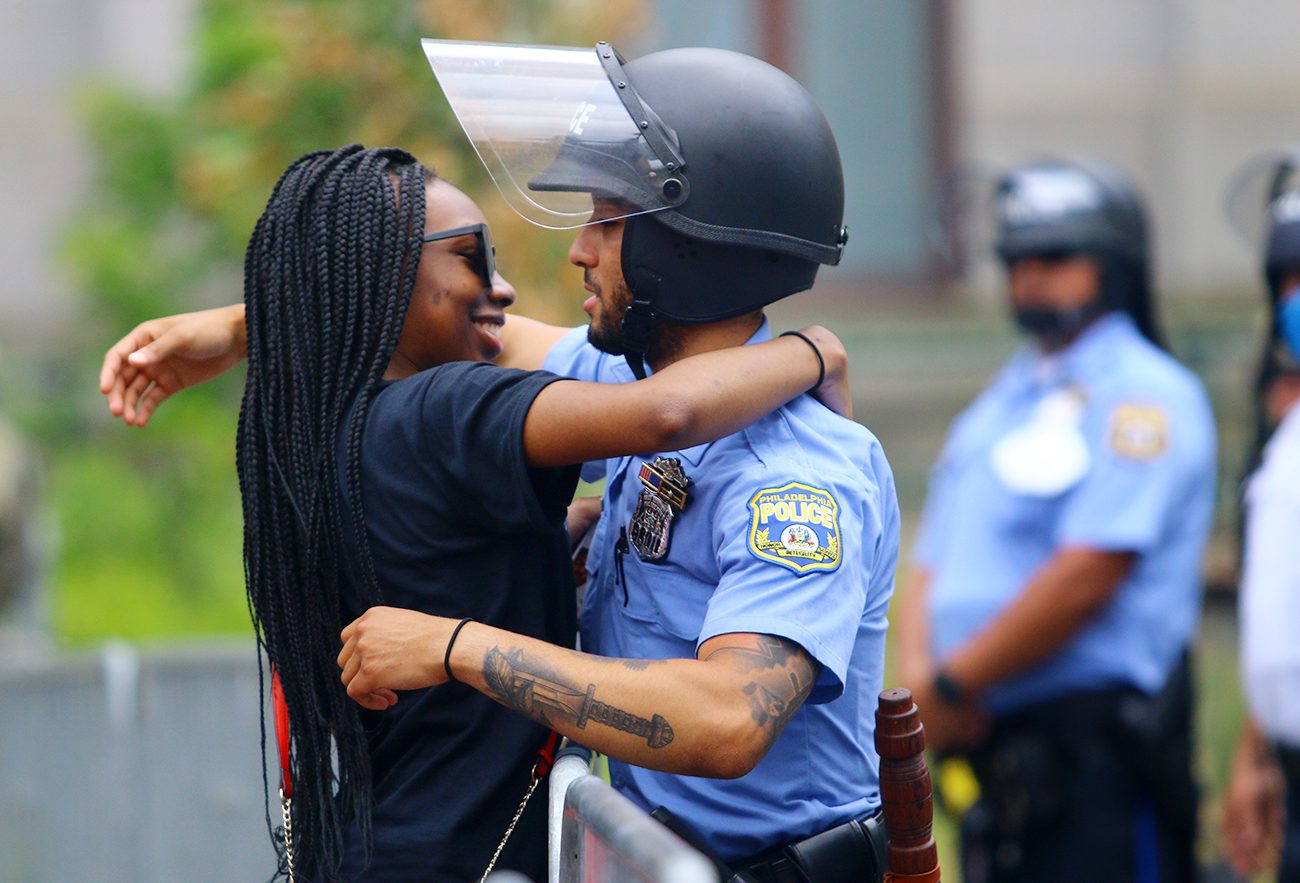Last year as marches for racial justice proliferated across the United States in the wake of the killing of Black people – especially of George Floyd – by police, Catholics joined many other people of good will to address the injustice and seek racial healing.
The ongoing work “to build a beloved community,” in the words of Rev. Dr. Martin Luther King Jr., took a new step this week in the form of the Commission on Racial Healing in the Archdiocese of Philadelphia, which Archbishop Nelson Perez announced Jan. 18, King’s birthday.
As the 15 members of the commission gather for the first of their monthly meetings in February, “they will encounter each other as sisters and brothers with respect and love,” wrote the archbishop in a statement (English|Spanish). “Through this encounter all of us will be led to action as we seek to live out the Gospel and eradicate the sin of racism.”
[hotblock]
The archbishop had asked Auxiliary Bishop John McIntyre to form the commission, and he worked with Father Stephen Thorne, pastor of the predominantly Black Catholic St. Martin de Porres Parish in Philadelphia, and Msgr. Daniel Kutys, moderator of the curia for the archdiocese, to identify and invite the members to the commission.
More than half are Black Catholics because racism “affects the Black community in a particular way, (and) membership should reflect that,” Bishop McIntyre said.
The commission overall represents a diverse mix of racial and ethnic backgrounds, young adults and their elders, and residents of parishes in both Philadelphia and its suburbs.
The members include: James Andrews, director of the archdiocesan Office for Black Catholics and a member of St. Martin de Porres Parish in North Philadelphia; Rebecca Cherico of St. Helena Parish in Blue Bell; Velma Clark of Our Lady of Charity Parish in Brookhaven; Honorable Lucretia Clemons, a judge of the Philadelphia Court of Common Pleas and a member of St. Raymond of Peñafort Parish in Philadelphia; Father Keith Chylinski, a professor at St. Charles Borromeo Seminary in Wynnewood; Gerald T. Davis of St. Isaac Jogues Parish in Wayne; Sister Jocelyn Edathil, SIC, of St. Jude Syro-Malankara Catholic Church in Philadelphia; Udochi Ekwerike of St. Cyprian Parish in Philadelphia; Jose Figueroa of St. Martin of Tours Parish in Philadelphia and a retired Philadelphia police officer; Alana Lee of St. Thomas Aquinas Parish in Philadelphia; Angela Lewis of St. Eleanor Parish in Collegeville; Grace Maguire of St. Katharine of Siena Parish in Wayne; Marcelle McGuirk of the Cathedral Basilica of SS. Peter and Paul Parish in Philadelphia; Patrick McKenzie of St. Paul Parish in Philadelphia; Lorenzo Umstead of St. Ignatius of Loyola Parish in Philadelphia; and David Nguyen of St. Helena Parish, Philadelphia.
[tower]
“The purpose of the commission,” Bishop McIntyre said, “is to look at the sin of racism in the light of the Gospel of our Catholic faith, and then see where we’ve succeeded in addressing it and moved forward, and where we haven’t, and where we need to move forward.”
Beyond that broad vision, the commission’s practical goals will develop over time “depending on the discussion and discernment among the commission members,” the bishop said. “We don’t want to impose on them an agenda. We’re hoping goals will surface.”
The intention is to get people “of various racial and ethnic backgrounds around the table to talk about racism, and ideas and recommendations will come from it,” he said.
He added that leadership, including a chairperson, will be elected at the first meeting next month virtually on the Zoom platform, and eventually in person at the Archdiocesan Pastoral Center. He expects himself, Father Thorne and the archbishop to be present at the initial commission meetings.
In the future the commission might also meet at a location in the community, perhaps at a parish. “For some people it could be an eye-opener going to a particular parish in a particular section of the city where they don’t live,” Bishop McIntyre said.
But the work of the members to encounter one another and share views will not be centered on Philadelphia or other urban areas of the Philadelphia Archdiocese, and instead will address “the life of the local church,” he said.
This response to the needs of the time echoes back almost 60 years when then-Archbishop John Krol formed the 11-member Archbishop’s Commission on Human Relations around 1964 in response to that turbulent era.
Later of course it would bear the name Cardinal’s Commission on Human Relations, and over time would balloon to 23 members in 1987 under the direction of Msgr. Michael Picard, now the pastor of St. Andrew Parish in Newtown, until 1990.
That commission also was assisted by a dedicated staff of 15 workers in an umbrella office for many ministries such as those to Black Catholics and Hispanic Catholics.
In today’s era of specialization those ministries are led by separate archdiocesan offices and directors for the works of Catholic outreach to the community.
Through them and especially with the new Commission on Racial Healing, the archdiocese continues to address the needs of people in the 21st century.
PREVIOUS: Holy Spirit guided takedown of notorious abortionist, says detective
NEXT: Clerical appointments announced




Share this story